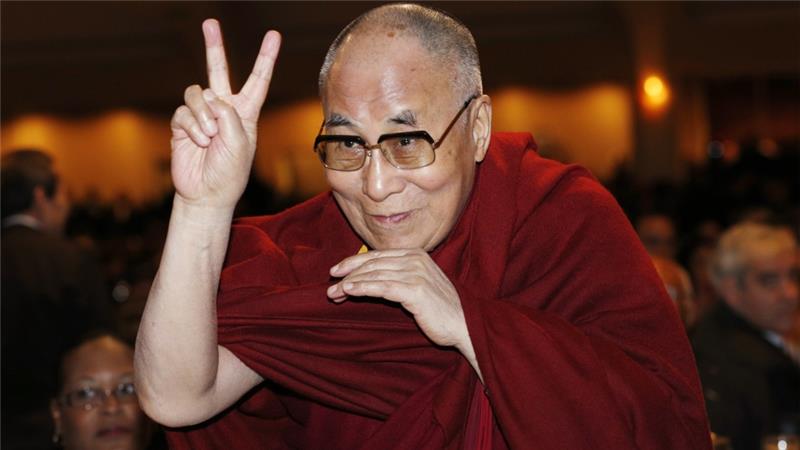Beijing routinely pressures foreign government representatives from publicly meeting with the Dalai Lama. While Barack Obama has met the Dalai Lama three times as president (2010, 2011, and 2014)—all amid standard objections from Beijing—each meeting was held in a low-key setting, without the presence of reporters. After it was announced that both the Dalai Lama and President Barack Obama would be in attendance at this year’s National Prayer Breakfast in Washington, China’s foreign ministry issued characteristic protest. President Obama did not have a face-to-face with the Tibetan spiritual leader in Washington yesterday, but he did publicly welcome the Tibetan spiritual leader as a “good friend […,] a powerful example of what it means to practice compassion, who inspires us to speak up for the freedom and dignity of all human beings.” At the Wall Street Journal, Josh Chin quotes modern Tibet scholar Robert Barnett on how this type of public “non-meeting” with the Dalai Lama illustrates diplomatic savvy on Obama’s behalf:
“I think this shows the Americans are learning gradually and successfully how to play the Chinese back in their own manner of doing politics,” said Robbie Barnett, an expert on modern Tibet at Columbia University.
In particular, Mr. Barnett said, Mr. Obama’s non-meeting with the Dalai Lama demonstrated a grasp of the symbolic politics favored by Beijing but usually dismissed out of hand by Western governments. By conceding on not actually having a discussion with the religious leader, the White House appears to be respecting Beijing’s demands, he explained.
“Meanwhile, you can’t get away from the television image of the president with his hands clapped together bowing his head toward the Dalai Lama,” he said. “That’s a very strong message. It doesn’t look like a climb-down.” [Source]
The New York Times’ Andrew Jacobs rounds up foreign ministry and state media disapproval of Obama’s public reverence for the Dalai Lama, and quotes Robert Barnett on how this easily anticipated reaction can be interpreted as a loss of face for Beijing:
“The Dalai Lama has over a long period of time used the banner of religion to engage in separatist, anti-Chinese activities as a political exile,” Hong Lei, a Foreign Ministry spokesman, said during a regular news conference on Friday. “We oppose any foreign country allowing the Dalai Lama to visit, and oppose any country using the issue of Tibet to interfere in China’s internal affairs.”
In a commentary Friday, the state-run news agency Xinhua was more colorful. “This action by the U.S. to ‘drive a nail’ into the hearts of the Chinese people is harmful to the political trust between the two countries, and it is harmful to the premise and foundation of both sides building a new relationship,” it said.
[…] Although China’s forceful and florid protests are largely aimed at showing its resolve to a domestic audience, Mr. Barnett said its public statements were unbecoming of a world power. “It makes them look tetchy and unreasonable,” he said, “and in the end, the Chinese allowed the Americans to walk them into a situation that doesn’t look good.” [Source]
While much of the international community may be immune to the parroted Party line on a widely respected global figure who Beijing continues to regard as a “splitist”—despite his own claims that he only strives for genuine Tibetan autonomy within the PRC—many in China may still be firmly against him. At PRI’s The World, Foreign Policy’s Isaac Stone Fish notes trends in Chinese public opinion that are less than sympathetic to the Dalai Lama:
At Tricycle, read “Angry White Buddhists Protest the Dalai Lama,” an introduction to the New Kadampa Tradition—an anti-Dalai Lama “sect of almost exclusively non-Tibetan converts to Tibetan Buddhism.” Also see the latest ChinaFile conversation, where Robert Barnett, anthropology professor and scholar of Chinese ethnic relations Dru C. Gladney, and international affairs commentator Fracensco Sisi discuss the Dalai Lama’s motives in seeking an audience with world leaders. For more on Tibet and the Dalai Lama, see prior coverage via CDT.








